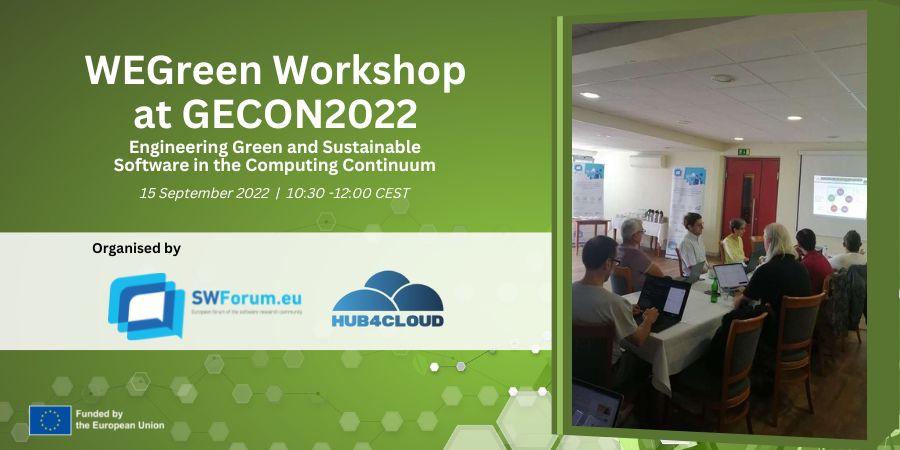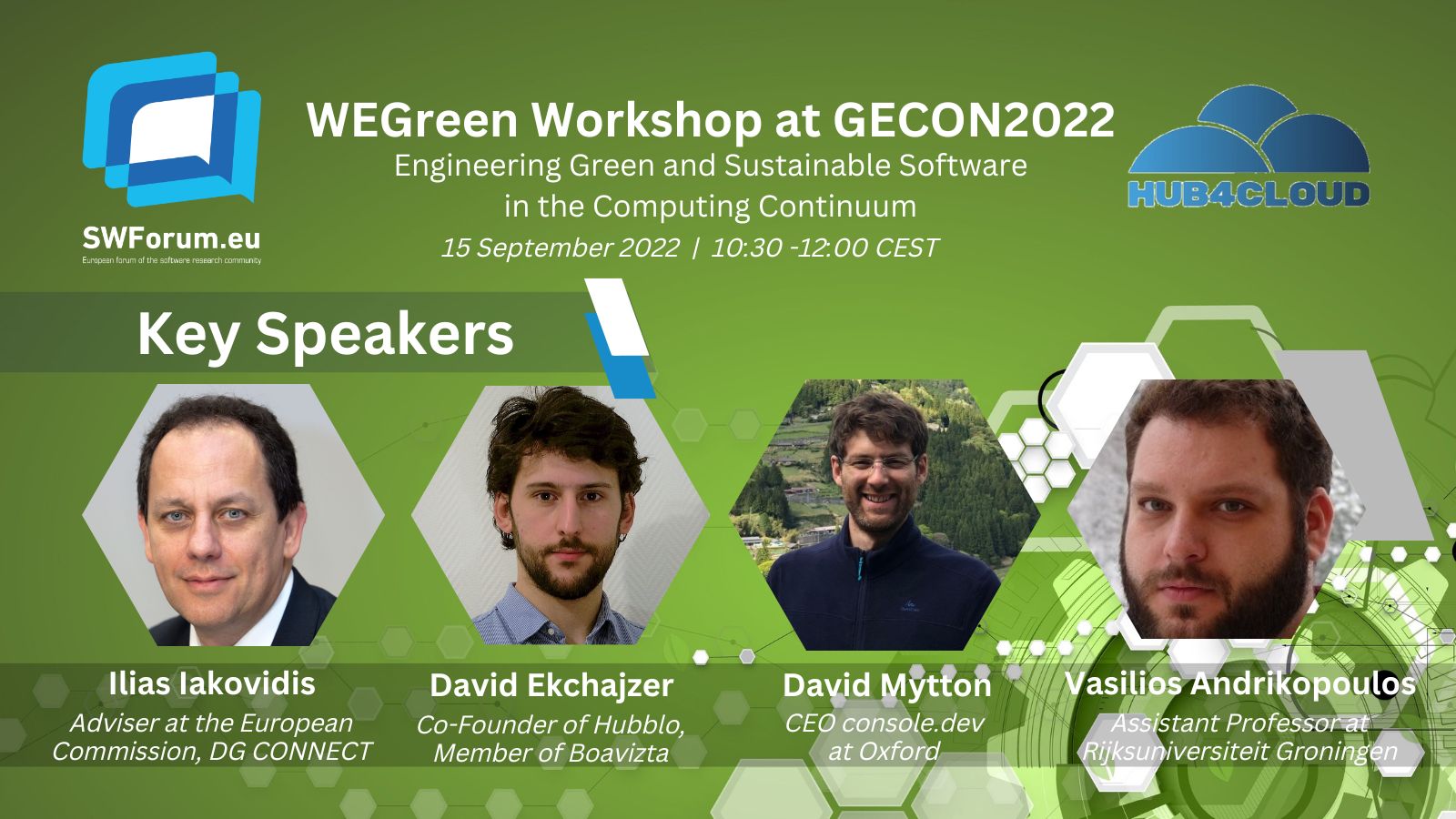WEGreen Workshop at GECON 2022: Gathering Together the Software Engineering and Cloud communities

On September 13-15, the 19th International Conference on the Economics of Grids, Clouds, Systems and Services (GECON 2022) was held in a hybrid format at San Simon Resort in Izola, Slovenia.
GECON 2022 builds upon the very successful tradition of the conference's previous editions since 2003. GECON solicits interdisciplinary contributions, combining business and economic aspects with engineering and computer science-related themes. Contributions to this conference can include extensions to existing technologies, successful deployments of technologies, economic analyses, analyses of technology adoptions, and theoretical models. As part of the conference programme, dedicated workshop sessions were introduced to gather original work and build a strong multidisciplinary community in this increasingly important area of the future information and knowledge economy.
SWForum.eu WEGreen Workshop at GECON 2022
On 15 September 2022, SWForum.eu, in collaboration with HUB4CLOUD, took part in GECON 2022 in Slovenia, organising its first physical workshop entitled “WEGreen Workshop on Engineering Green and Sustainable Software in the Computing Continuum”.
The WEGreen workshop focused on all issues concerning the engineering practices relevant to the creation and execution of green and sustainable software in the cloud continuum. This workshop gathered together 40 (live and online) attendees in the software and cloud community across the globe.
The workshop was opened by the introductory talk of Juncal Alonso-Ibarra, a R&D Engineer at TECNALIA and SWForum.eu Project Coordinator. Juncal provided an exhaustive overview of the projects and its goal, creating a self-sustainable online forum that facilitates and encourages both researchers and practitioners as well as projects in software, digital infrastructure and cybersecurity to create intersections of expertise and a multidisciplinary approach to research and innovation.

The first keynote speaker, David Ekchajzer (Co-Founder of Hubblo, Member of Boavizta) opened the discussion on how to measure and evaluate the environmental impact of ICT with open data, methods, and tools. This topic could be relevant to the StandICT project, which is driving ICT standardisation.
Our next keynote speaker was Ilias Iakovidis (Adviser at the European Commission, DG CONNECT) who provided the EC perspective on how software plays an important role in providing digital solutions in realising the benefits of enabling sustainability in the digital sector. He also emphasised the net effect of software applications and hardware.
Green digital transformation is essential but green is suffering from digitalisation. Focus on enablement, algorithmic optimisation.
During the workshop, it was emphasised by the EC representative to look at standards, evaluate the software landscape, and standardise monitoring and reporting.
There were also two problem statements that were presented as part of the call for abstract/contributions, presented by David Mytton (CEO console dev, researching sustainable computing from Oxford) and Vasilios Andrikopoulos (Assistant Professor, University of Groningen), presenting the potential sustainability of research results.
Technical insights from the workshop discussion
Understanding the environmental impact of ICT is possible by simply measuring energy consumption.
The workshop was chaired by SWForum partners, Elisabetta Di Nitto (Professor at Politecnico di Milano) and David Wallom (Professor of Informatics, founding Course Director, MSc in Energy Systems at University of Oxford), and facilitated the panel discussion with our speakers.
The discussion at the workshop highlighted the fact that the analysis is quite complex and should consider a multitude of elements.
We should be able to determine “the environmental net effect” of ICT. Assuming that we can determine this, then we can make decisions at different levels: technical (e.g., we can redesign our ICT systems), political (e.g., we can decide how to produce the needed energy), social (e.g., we can limit the usage of some high-impact systems).
Understanding these points has really opened our minds and the SWForum team, and HUB4Cloud, are very grateful to all participants for their great contributions. Experts should explore the field even more, and invest in making sure that subjects related to sustainability are taught in our courses in computer science and engineering.
The environmental impact of ICT is a highly complex 'system' where each component interacts with another. In order to understand that system, we must first really baseline what impact it has through open data and open models. Using this data intelligently, then we can complete a full Life Cycle Assessment on the system. Finally, we can then attack the key drivers of consumption at each level in the system, from hardware to software and everything that connects them.
Thank you to all our live and online attendees. Workshop recording and presentations are available on the WEGreen event page.